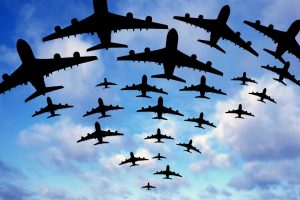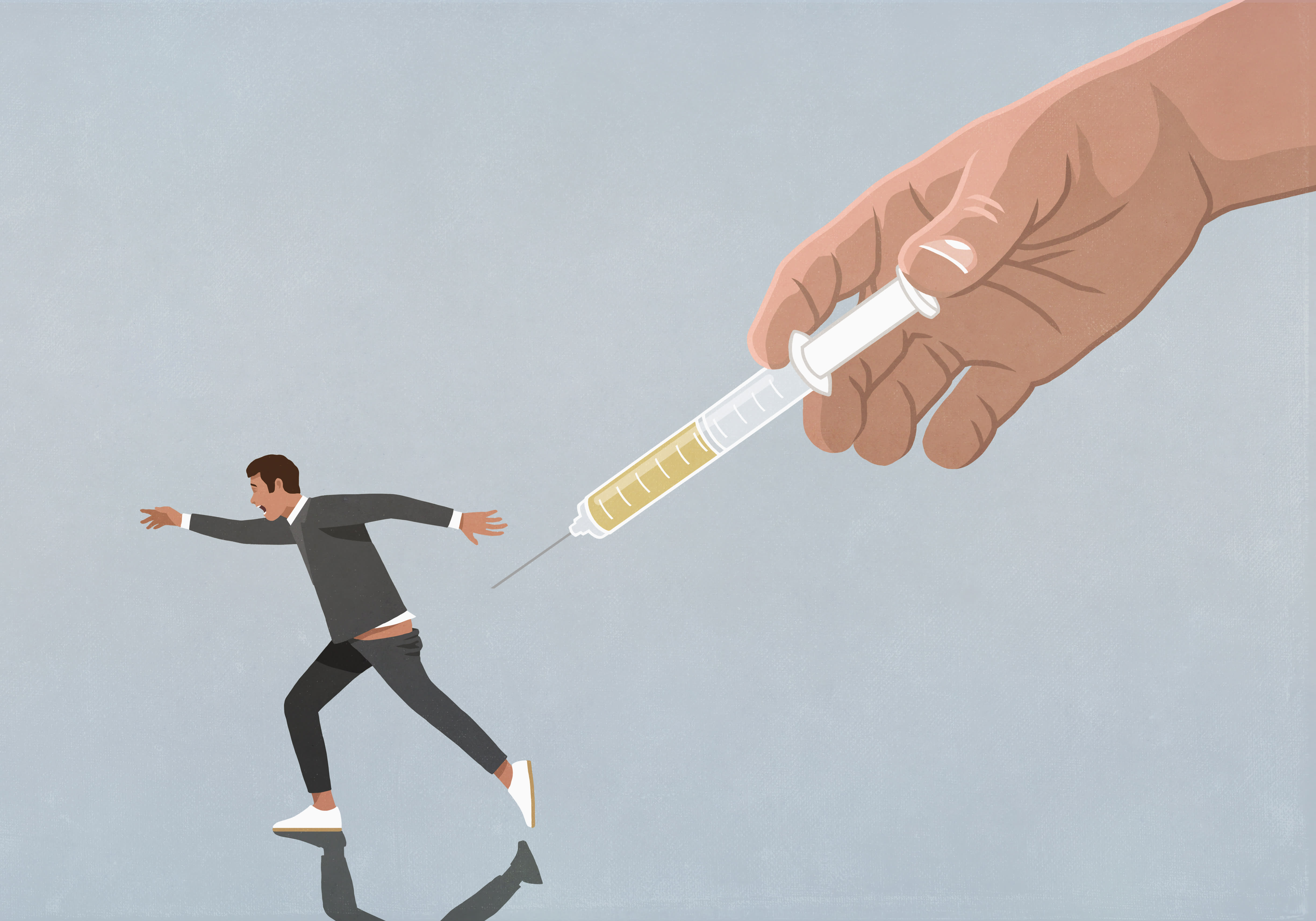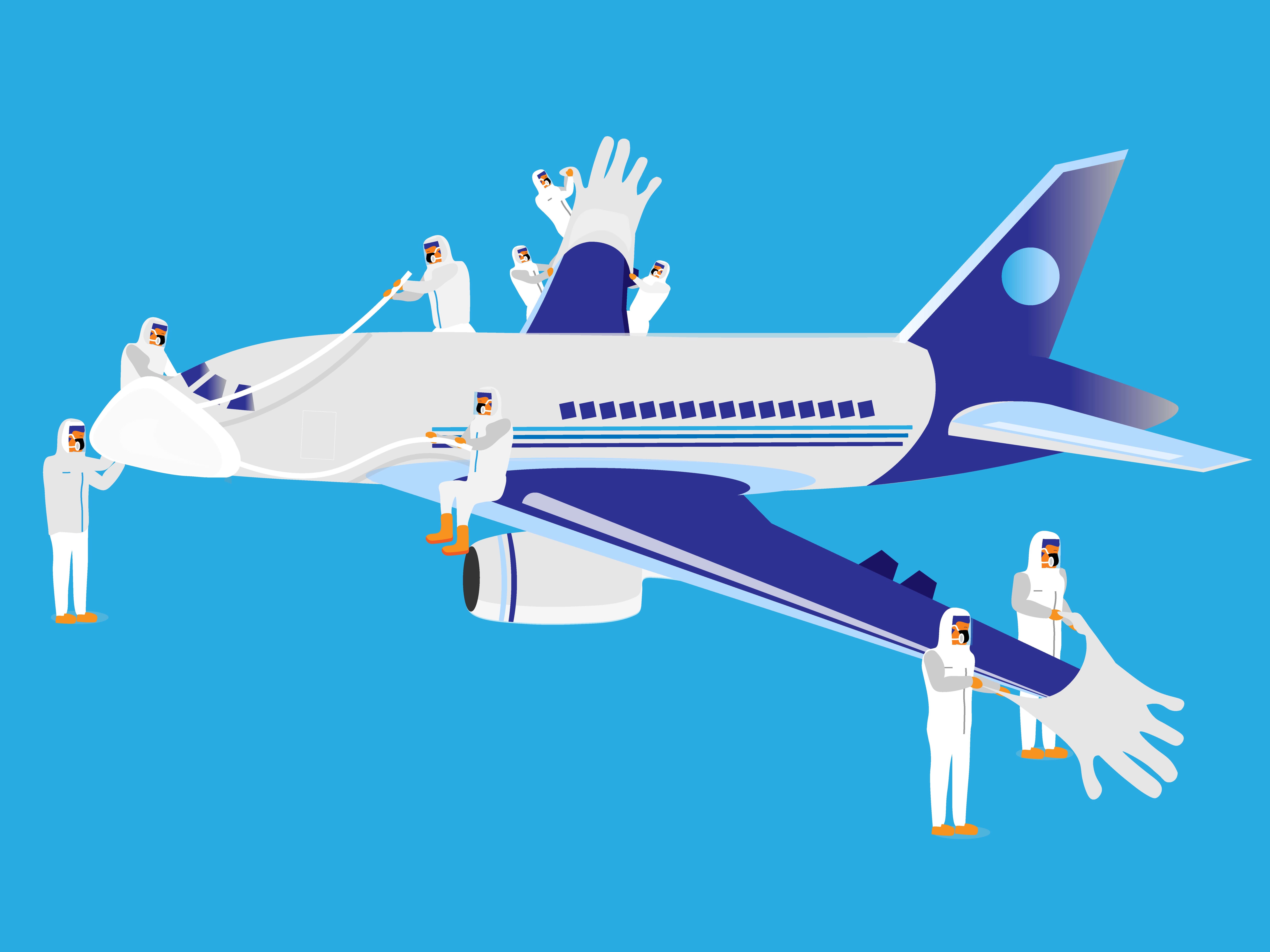‘Unfortunately, business is booming’: Companies that fly home Covid-positive travelers have a busy summer

When Ken McElroy decided to go to Belize after a business trip to Miami last June, he wasn't worried about contracting Covid-19, he said.
The real estate investment company CEO was flying privately to both places — plus, he's vaccinated.
"I was like, there's no way I'll get it," he told CNBC.
His fiancee, Danille Underwood, wasn't as confident, said McElroy.
After 10 days in Belize, the couple took Covid tests the day before their flight back to Arizona. Though he was feeling tired and she had a cough, both were surprised when their tests came back positive.
"Within an hour, we were out of our room," said McElroy. "Things got pretty real at that point."
Assisted by people in hazmat suits, the couple was quarantined in another part of the hotel, he said.
"We weren't sure what was going to happen … if they were going to separate us or put us in a hospital," said McElroy. "I didn't know if I was going to need a respirator."
None of that happened. Within 72 hours, the couple was on a Learjet back to Arizona.
'Then delta showed up'
Before they left, Underwood purchased memberships with Covac Global, a medical evacuation company launched by the crisis response firm HRI in the spring of 2020. It meant the couple didn't pay a dime for their repatriation, said McElroy.
Commercial airlines and private jets can't fly travelers with Covid-19 home, but certified air ambulances staffed with medical teams can.
While some companies evacuate travelers who require hospitalization, Covac Global retrieves travelers who test positive for Covid-19 and have one self-reported symptom. About 85% of evacuees are returned home, while the rest need hospital attention, said CEO Ross Thompson.
When CNBC first spoke with the company in March, it was performing about two to three medical evacuations every month. Now, that number has climbed to about 12 to 20.
"Unfortunately, business is booming," said Thompson. "Covid was starting to be more in the rearview mirror, but then delta showed up — and it threw everybody for a loop."
Covac Global memberships have increased 500% this year, with a 250% increase in the last month alone, he said.
So-called "breakthrough infections" caused by the highly contagious delta variant mean vaccinated people, too, can find themselves sick — or stuck — far from home. About 60% of current evacuees are vaccinated, said Thompson, because "they are the ones that feel most comfortable to travel now."
Many countries require negative tests to return home, which is detecting mild cases of Covid-19 in travelers who didn't know they were infected.
"We find that between 30% to 40% of members test positive toward the end of their trip," said Thompson. "We also see it with the unvaccinated younger children of vaccinated travelers."
Medjet, another medical evacuation company, is reporting a record-setting summer, announcing that sales of MedjetHorizon memberships — its highest tier of coverage — were at an all-time high in July. The company just posted its highest month-over-month net gains in memberships in more than a decade, it said.
Calls for assistance are above pre-pandemic levels, said Medjet CEO John Gobbels, though they aren't all related to the pandemic.
"Some are for Covid, but the majority are still the same old things that have never gone away," he said.
'Literally door to door'
After flying via helicopter to the mainland of Belize and transferring to a Learjet ("we didn't have to go into the terminal"), McElroy and Underwood flew to Phoenix where a limo bus was waiting on the tarmac.
Service "was literally door to door," said McElroy.
This isn't about five-star service though, said Thompson. Certified air ambulances are required to get Covid-positive patients to either hospitals or in the case of Covac Global, their homes, he said.
Otherwise, situations arise where nonmembers ask to be evacuated to the closest city in their country, so they can drive to their homes to save money, he said. Instead of driving, they may hop on a commercial flight, which Thompson said is "a big no-no."
McElroy called his fiancee "the hero of the story," since she had pushed for and eventually purchased their evacuation policies.
'Astronomically expensive'
Other travelers aren't as lucky.
CNBC spoke with a 43-year-old Singaporean man who attempted to move from India back to Singapore last April to start a new job. The journey — which can be a mere six-hour flight — turned into a six-week saga. The man requested anonymity for this report.
Singapore was limiting travelers from India, so the man and his family scheduled a two-week trip to Nepal, after which they could fly directly to Singapore. While there, the delta variant exploded in the region, and all flights from Nepal to Singapore were canceled.
Within days, the man, his wife, three kids and his 85-year-old mother all tested positive for Covid, he said. By that time, Nepal had imposed a strict lockdown — petrol stations and public transportation had closed, he said, and the family struggled to find food and medicine.
"We knew nobody," he said. "We knew nothing of the medical system, and people are dying, left, right and center without beds and without oxygen."
The family was evicted from their serviced apartment when management learned of their health conditions, he said. Weeks passed and the family fully recovered, but they were prevented from taking the once-weekly flight back to Delhi because they continued to test positive for Covid-19.
"The RT-PCR [test] basically looks for the DNA of the virus, it doesn't distinguish between dead and live cells," he said.
He looked into medical evacuations, but was told by a friend who was similarly stuck in the Philippines that such flights are "astronomically expensive."
Eventually, the family tested negative and made it back to Delhi. In the 20 days that followed his recovery, the man told CNBC that he slept in 12 different locations. He is now in Singapore, but some of his family members remain in India.
Members vs. nonmembers
Medical evacuations are costly. Thompson said evacuations from Singapore to New York can cost upward of $300,000. Still, 70% of Covac Global's evacuations are nonmembers who are paying out-of-pocket to be flown home from places like the Bahamas, Mexico, South Africa and Dubai.
Since memberships opened to all nationalities on July 15, the company is evacuating more people within Europe, especially from Spain to the United Kingdom.
Comparing Covid evacuation memberships
| Medjet Assist | Global Rescue | Covac Global |
|---|
So far, Thompson said, no foreign government has turned down his company's request to evacuate a Covid-positive traveler from its territory. They are usually happy to let them leave, he said.
"They don't want a news story of some foreigner dying of delta in their hospitals," he said, nor do they "want to lose one of their beds to a foreigner."
The only time trouble may arise is when a hospital has already started treatment. "That's when governments really start to be a little weird about it," he said.
The cruise conundrum
Memberships with companies such as Medjet and Global Rescue cover cruise passengers, but Covac Global does not.
"Cruises are doing really well with their protocols and policies," said Thompson. "But the problem is … every time, whether it's reported or not, there are people that are sick."
Covac Global has evacuated Covid-positive travelers who aren't members from cruises, though these cases aren't making the news, he said.
Thompson said that service isn't expensive for price-conscious cruisers.
"The cruise lines," he said, "are just quietly paying for it out of pocket."
Read more
Source: Read Full Article


